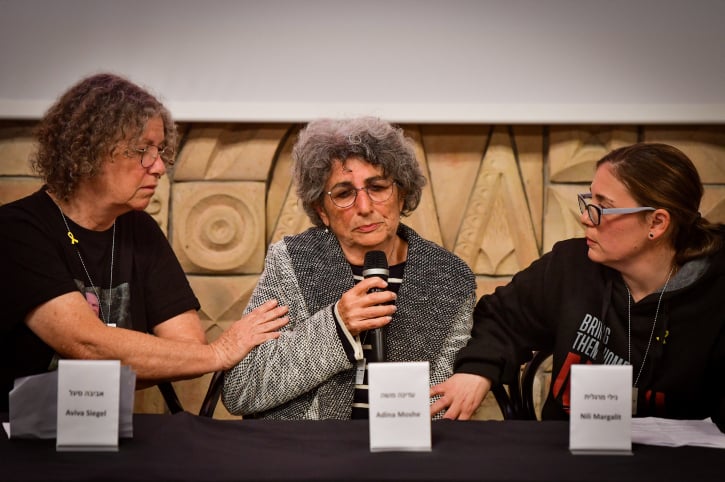The terrorists’ demands included paying a ransom in exchange for information on their loved ones.
By Batya Jerenberg, World Israel News
Families of Israeli captives held in the Gaza Strip have reported receiving threatening calls and messages from Hamas terrorists, even from their loved ones’ own phones, Channel 12 reported recently.
The phone and text messages have similar themes. One kind demands of the recipients that they “go out to fight” against the Israeli government’s prosecution of the war, or else “you won’t see your loved ones ever come back.”
Others demand ransom money to be sent to a bank account listed in the message in order for the families to get information on their captured relatives.
In an updated report on Saturday, former hostage Moran Stella Yanai told the news station that the demands for money were not new.
A Hamas terrorist holding her had asked her once in the first weeks of her captivity if her father loved her, and when she responded “More than anything,” he asked how much he would pay to get her back.
“I understood very quickly that maybe they were really contacting our parents and asking for money,” said the 40-year-old, who had been captured at the Nova dance rave where she was selling her handmade jewelry, “and I made it clear to him at that moment that my father would pay anything for me.”
The report showed Whatsapps onscreen written in bad Hebrew and English that her father had saved, with one saying that he had only “one hour if you want to see her alive,” with no follow-up.
“It’s part of the psychological games they play with us,” Yannai noted. “They don’t just toy with us, they toy with our families. It doesn’t end with ‘we murdered [people], we took [people], and we left.’ They continue to abuse us and continue to torment our families.”
At the end, Yanai had been freed in the late November deal when most of the Israeli women and children whom Gazan terrorists had abducted during their October 7 invasion were exchanged for a weeklong ceasefire, humanitarian aid, and the release of over 240 female and underage Palestinian prisoners.
The families sent the messages and phone numbers from which they came to the security authorities.
A preliminary investigation of the Shabak has revealed that those behind the threats are “hostile elements, either Iranian or those connected to Hamas,” said the report.
It is well known that Hamas is one of Tehran’s terror proxies and has received funding, training and arms from the Islamic Republic for decades.
Out of the 251 Israelis and foreign nationals Hamas and other terrorists captured on October 7 during their killing spree in which they murdered 1,200 people, 109 are still in captivity, although Israel has confirmed through exhaustive investigation that more than a third of them are dead.


